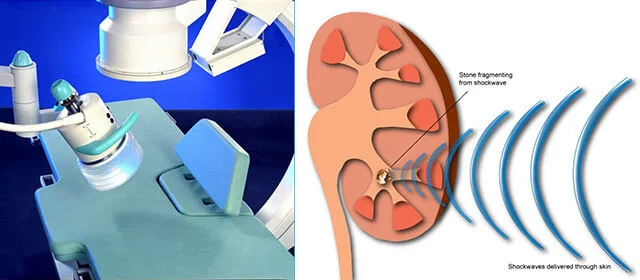
When kidney stones cause pain, discomfort, and complications, lithotripsy is one of the most effective medical procedures. This advanced, minimally invasive treatment uses sound waves or lasers to break kidney stones into smaller fragments, allowing them to pass naturally. Here, we will provide you with everything you need about lithotripsy treatment in West Palm Beach, how it works, its types, benefits, risks, and more.
Lithotripsy is used to treat large ureteral and kidney stones that are unable to pass naturally. This non-surgical procedure involves using laser energy and high-energy shock waves to break the stones into small fragments that can be passed through urine over time. Several types of lithotripsy are designed for different types and sizes of stones:
These effective and safe techniques offer shorter hospital stays and faster recovery times.
Lithotripsy is typically recommended when:
Here is the step-by-step lithotripsy procedure:
Here are some of the key benefits of lithotripsy compared to traditional surgical methods:
Lithotripsy is one of the safest and most convenient options that effectively eliminate painful kidney stones.
After lithotripsy, patients typically experience mild discomfort, blood in the urine, and cloudy urine for a few days. Expert urologists like Dr. Abouelleil provide personalized postoperative medical care to manage these concerns. Some aftercare instructions include:
Post-operative follow-up is crucial for monitoring or detecting any signs of complications.
Dr. Abouelleil is a well-recognized urologist with expertise in minimally invasive treatment procedures such as lithotripsy. Key reasons to choose Dr. Mourad Abouelleil for lithotripsy in West Palm Beach include:
Answer. Some common side effects include blood in the urine, minor pain, or infection; larger stone fragments may require additional procedures.
Answer. Lithotripsy is a minimally invasive treatment that is preferred for many cases. However, other options are preferred in cases such as very large stones or stones resistant to shock waves, like ureteroscopy.
Answer. To prevent kidney stones after lithotripsy, stay hydrated, reduce salt intake, maintain a balanced diet, etc.
Answer. For certain types of stones, such as calcium stones, lithotripsy is highly effective. However, stones in challenging locations or very hard stones may require alternative treatment.
Error: Contact form not found.